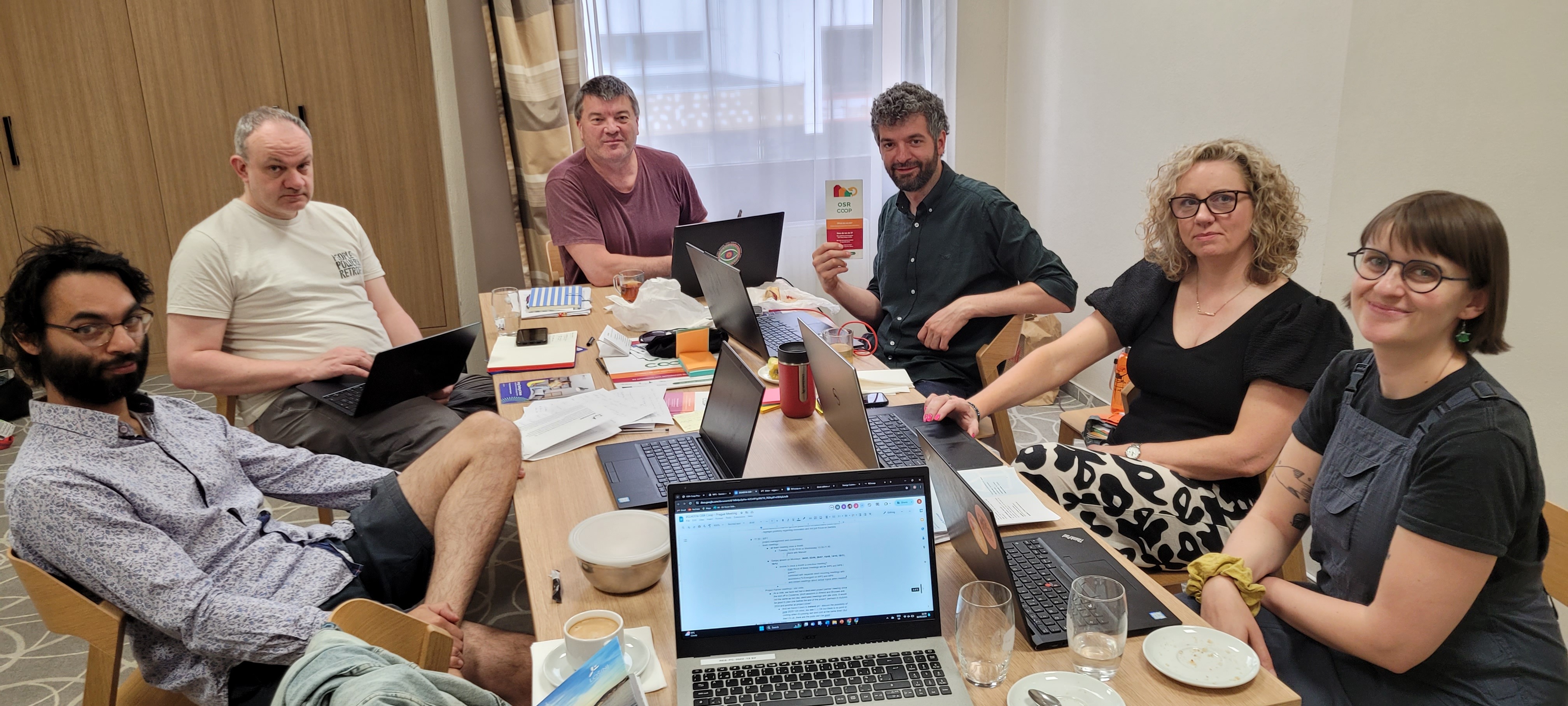News
CLR Workshop Reflection: May 2024, Prague
Blog post by Srgjan Vidoeski, REScoop.eu
The OSR-Coop Project participation at the European Energy Communities Forum in Prague between 13 and 16 May 2024 had us there in a few different formats. Firstly, the project’s consortium had the opportunity to present its work with an exhibition stand, equipped with brochures and posters. The OSR-Coop stand was set up and open for the entire duration of the Forum. With it, we gave the possibility to any of the participants interested in cooperative One Stop Shops for renovation services to approach and discuss with a project’s representatives anything they would be interested in asking.
Furthermore, the OSR-Coop project partners organised a consortium meeting on 16 May while in Prague, right after the final day of the Forum. With an in-person meeting there in The Czech Republic, the project partners took advantage of the chance being all present in one location. Following the agenda confirmed prior to the meeting, the project partners took the possibility to discuss current project activities, to plan for the upcoming ones, and to reflect on the Forum’s participation while the impressions were still fresh.
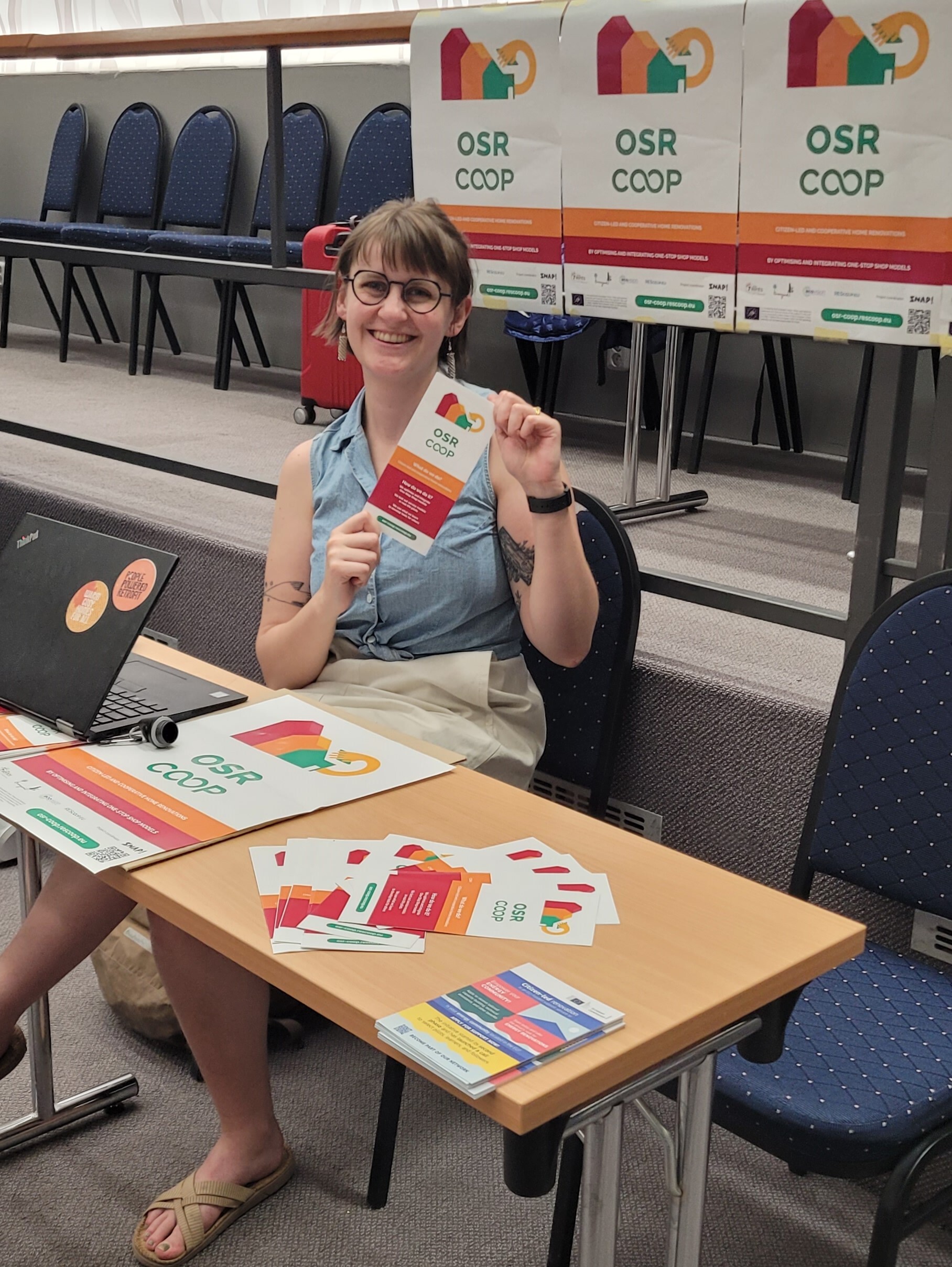
Nonetheless, we all agreed that the highlight of our participation at the Forum has been the organisation of the Citizen-led Renovation Workshop as part of the Forum’s official programme, held on 15 May 2024. The interactive workshop facilitated by the project’s partners delved into the relationship between energy communities and citizen-led renovation, discovering more about the fabric of this connection. The workshop was organised into several round tables for group discussions. For more on the workshop’s agenda, overall atmosphere, and setup, please take a look at the news feed we published right after the Forum ended.
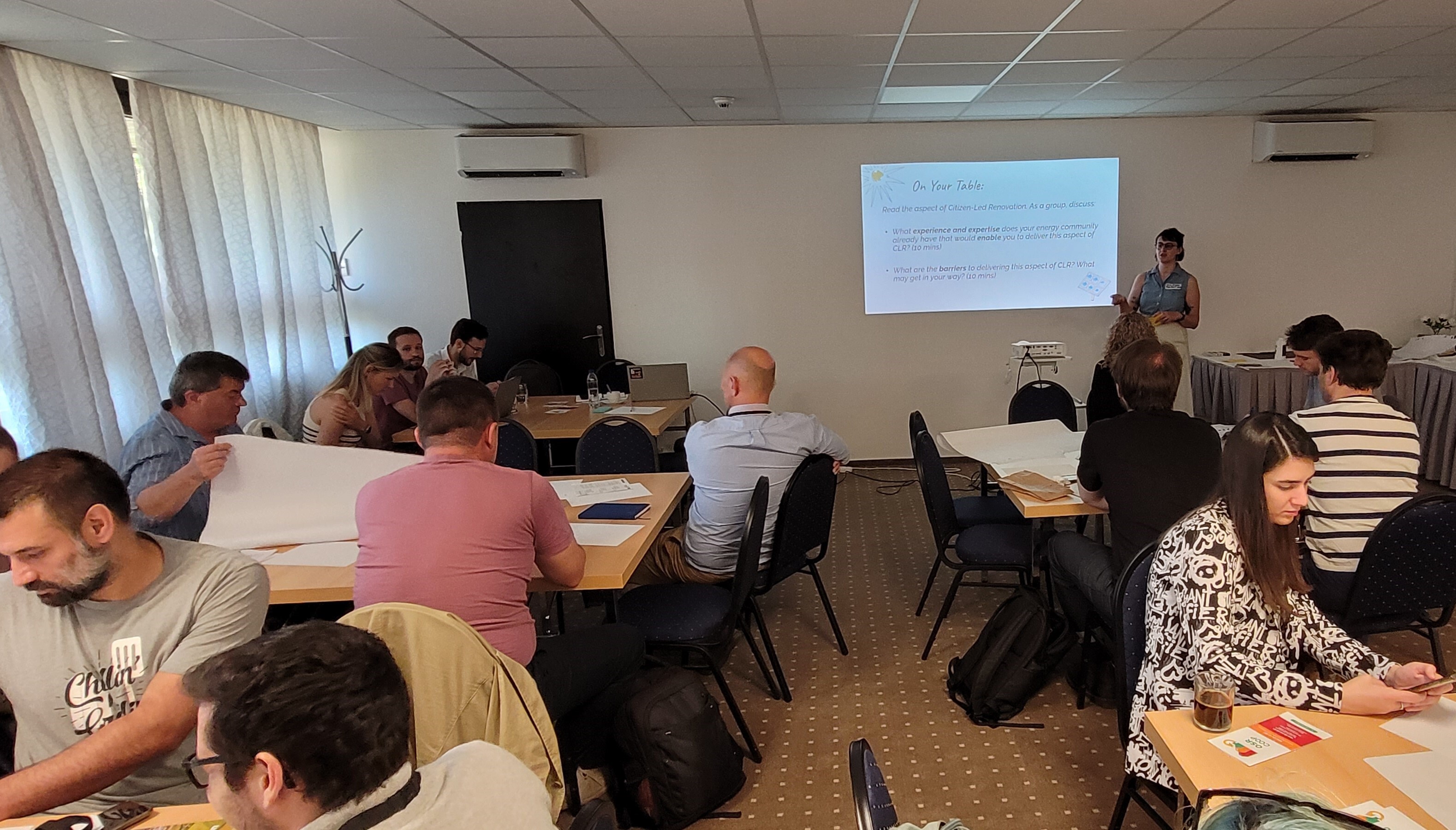
During our session, the interactive workshop was organised in a way that each of the tables had a topic related to an aspect of citizen-led renovation activities. The main task of the participants was for each of the groups to think of enabling factors and potential barriers for the topic given. With this setup, the session turned into a vibrant exchange of ideas within the dedicated hour of interactive group work, focusing on identifying both the enablers and barriers to delivering renovation services within energy communities.
Renovation Advice and Information
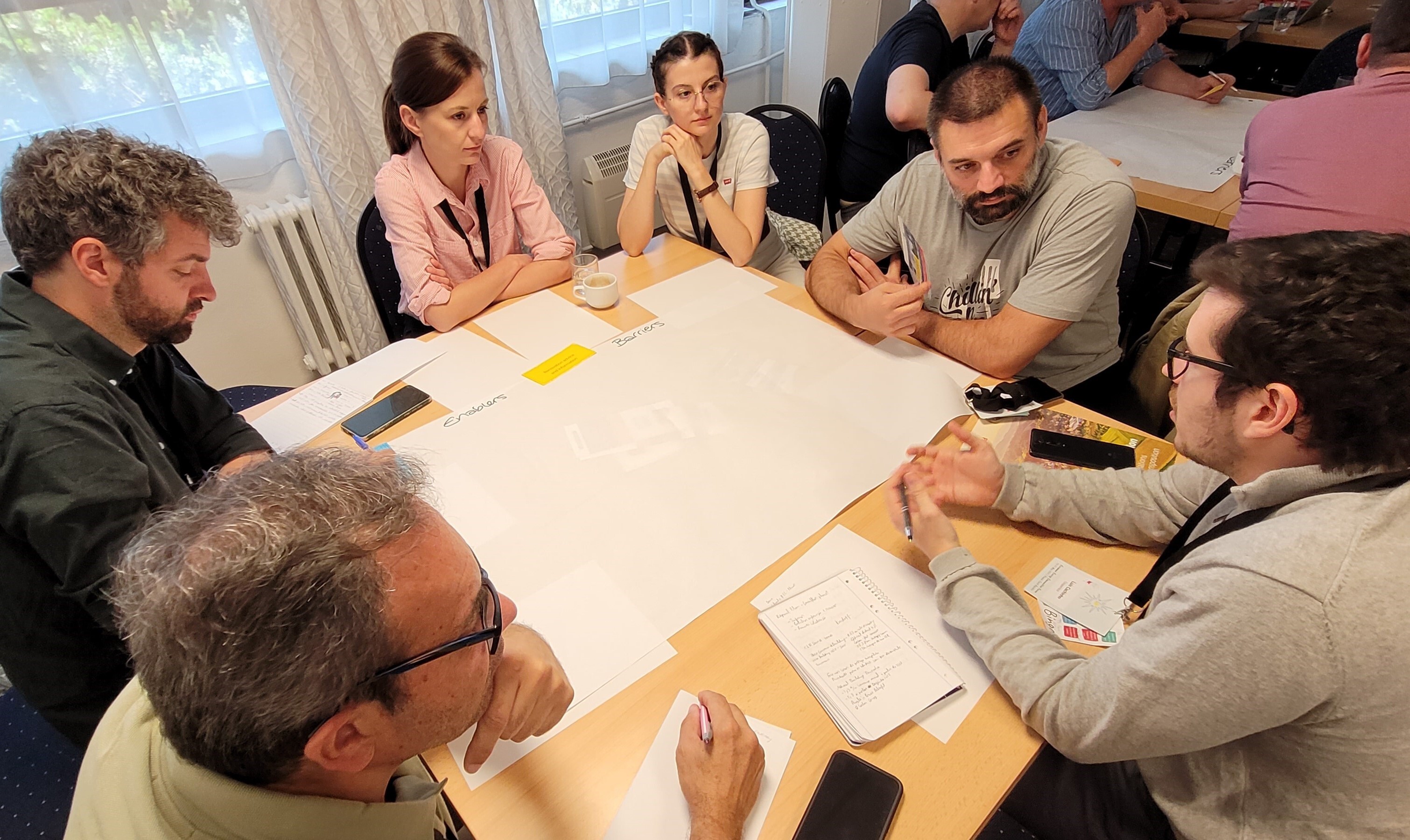
One of the round tables was facilitated by our colleague Matthias Ghyselen from Energent (Belgium). Matthias facilitated and took part in the group that had the topic “renovation advice and information". As a main takeaway from their group discussions, Matthias highlighted the following enablers that assist the energy communities in providing renovation advice and disseminating information:
- Technical and Legislative Expertise: Our participants highlighted the importance of having technical and legislative know-how. This expertise forms the backbone of effective renovation advice
- Independent Advice: Independence is crucial for building trust within communities. Cooperative projects like Coopernico’s capacity-building initiatives in energy poverty and their involvement in Horizon projects for energy audits were praised for their impartial guidance
Regarding the barriers that are potentially slowing down the implementation of activities related to renovation advice and information sharing, this group detected the following ones:
- Misinformation: Tackling misinformation disseminated by contractors or other organizations remains a significant challenge
- Lack of Systematic Approach: Participants noted the absence of a strategic, planned approach. Renovations are often random and lack coordination, resulting in missed opportunities for efficiency
- Convincing Multi-Family Building Residents: One of the toughest hurdles is persuading all residents in multi-family buildings to agree on renovations, given the diverse opinions and interests
Energy Audit and Assessment Services
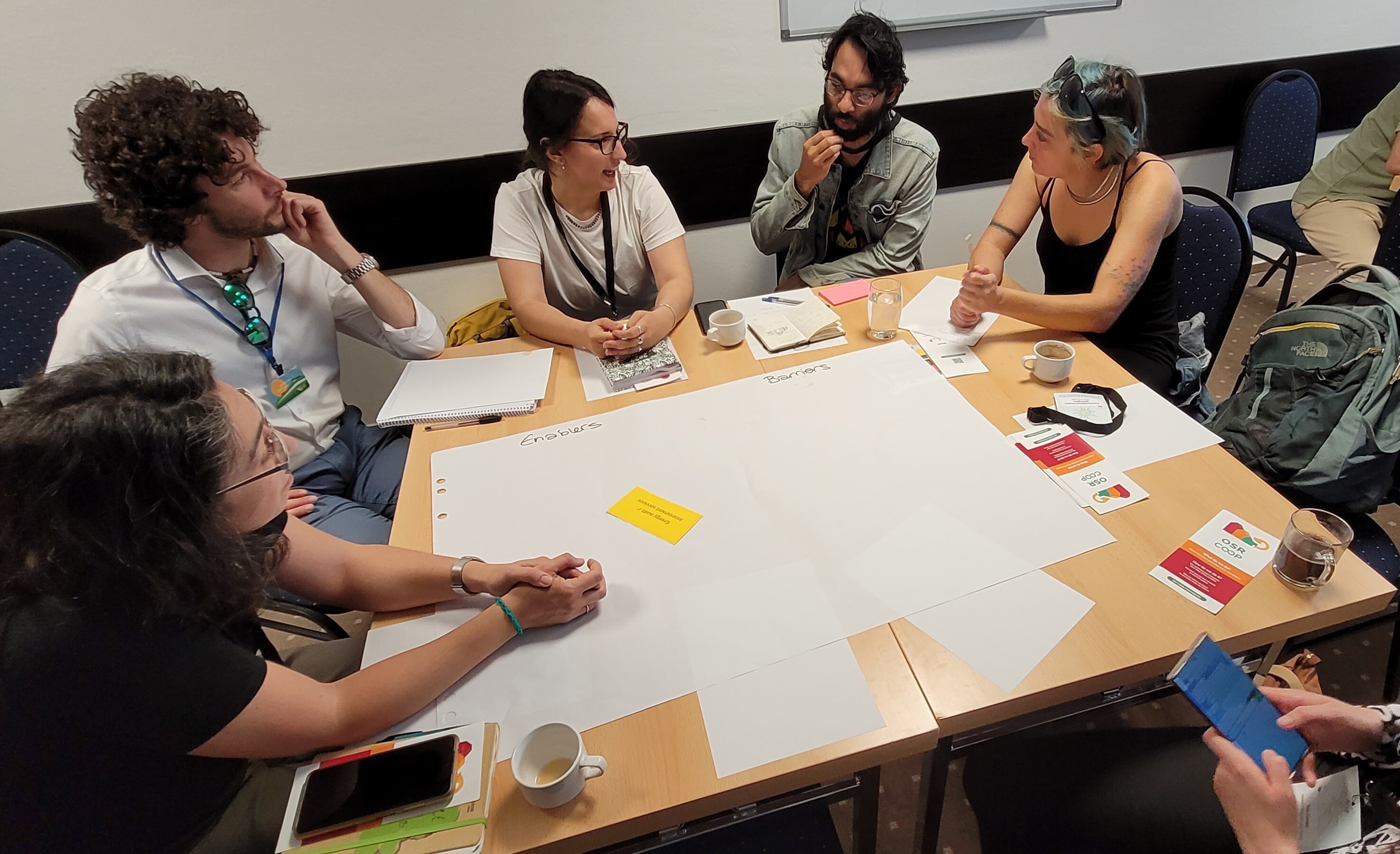
In another group, our colleague Sanjay Kumar from Les7Vents (France) worked with several participants on the topic “energy audit and assessment services”. Sanjay and his group fellows highlighted several enabling factors working to the advantage of energy communities setting up energy auditing and assessment services:
- Community Trust: Building trust within the community is fundamental. It creates an open-door policy, encouraging more residents to participate in energy audits.
- Experience and Holistic Approach: Experience in surveying structures, especially for photovoltaic (PV) installations, and a holistic approach that considers both buildings and occupants was deemed beneficial.
- Existing Models and Subsidies: Utilizing existing models and relationships can foster greater acceptance. Additionally, subsidies present opportunities for demand-response assessments.
Whereas regarding the barriers, Sanjay’s group made takeaways included the following ones:
- Financial Constraints and Housing Crisis: The cost of renovations coupled with the ongoing housing crisis makes it difficult for landlords and renters to prioritize energy audits.
- Time and Communication: Mobilizing time for working householders and effectively communicating the benefits of energy audits are ongoing challenges.
- Software Limitations: Current software tools do not adequately consider human needs, highlighting a gap in available resources.
Installing Renovation Measures
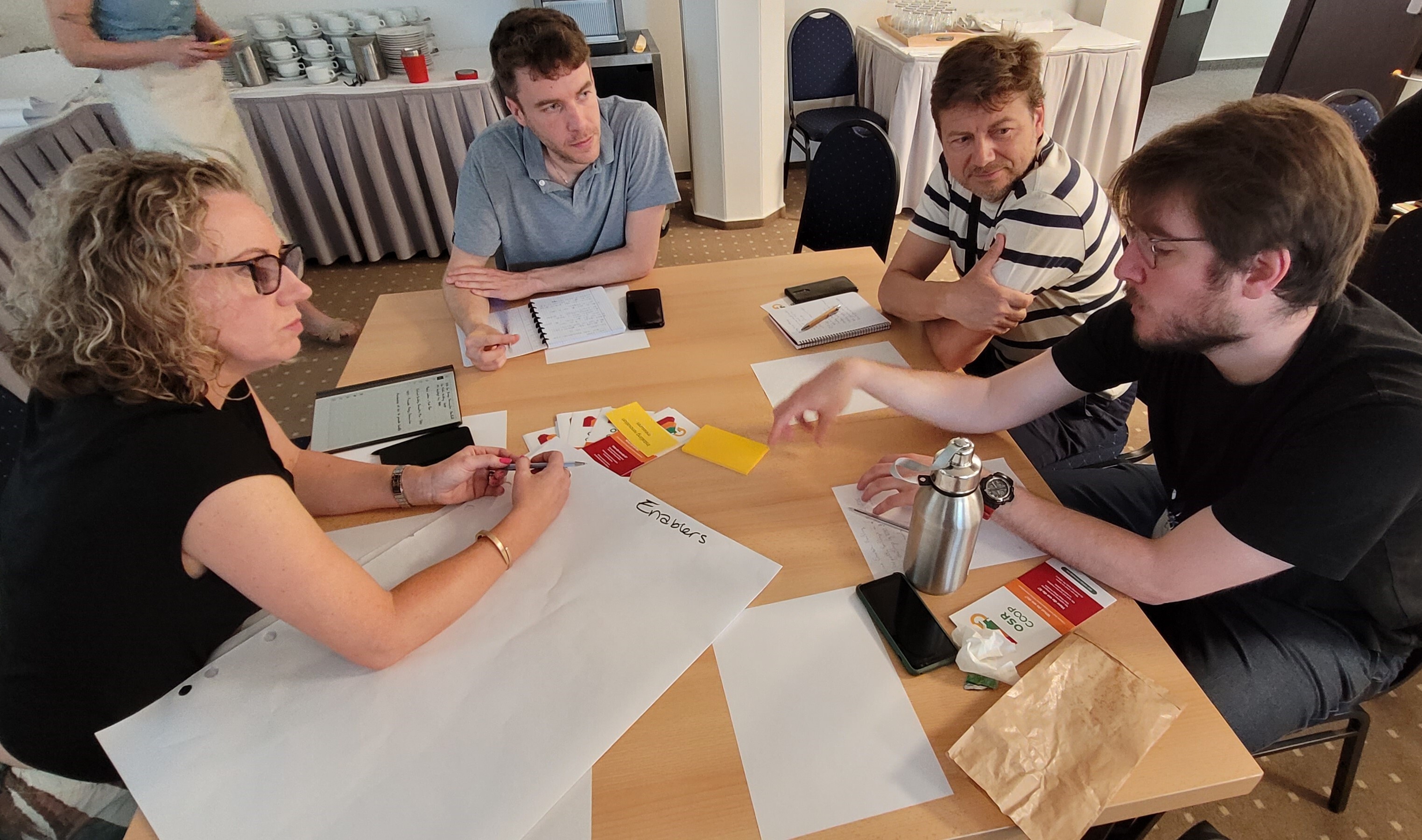
Our colleague Marcella from the Irish cooperative EcoVision (formerly ECTC) had the topic “installing renovation measures”. Under the assigned topic, the group work from Marcella’s table discussed the following enablers:
- Municipal Connections: Strong connections with municipalities can facilitate smoother implementation of renovation projects.
- Energy Community Membership: The vast membership base of energy communities provides a ready audience for promoting renovation projects, reducing the need for cold calls.
- Skilled Members: Engineers and architects within these communities can transition from energy generation to renovation, leveraging their skills for broader community benefit.
- Trusted Partners and Group Purchases: Established trusted partners and the potential for group purchasing can drive down costs and increase project viability.
Regarding the barriers they managed to map out, some of the highlights were these ones:
- Funding and Regulations: A lack of grants and loans, coupled with insufficient regulations, poses significant barriers. Additionally, poverty and the low return on investment in some regions hinder progress.
- Skills Shortage and Standards: There is a shortage of skilled labor and a lack of standardized practices, which affects the quality and efficiency of renovation projects.
- Temporary Accommodation: The need for temporary housing during renovations is another logistical challenge that needs addressing.
Skills and Training Provision
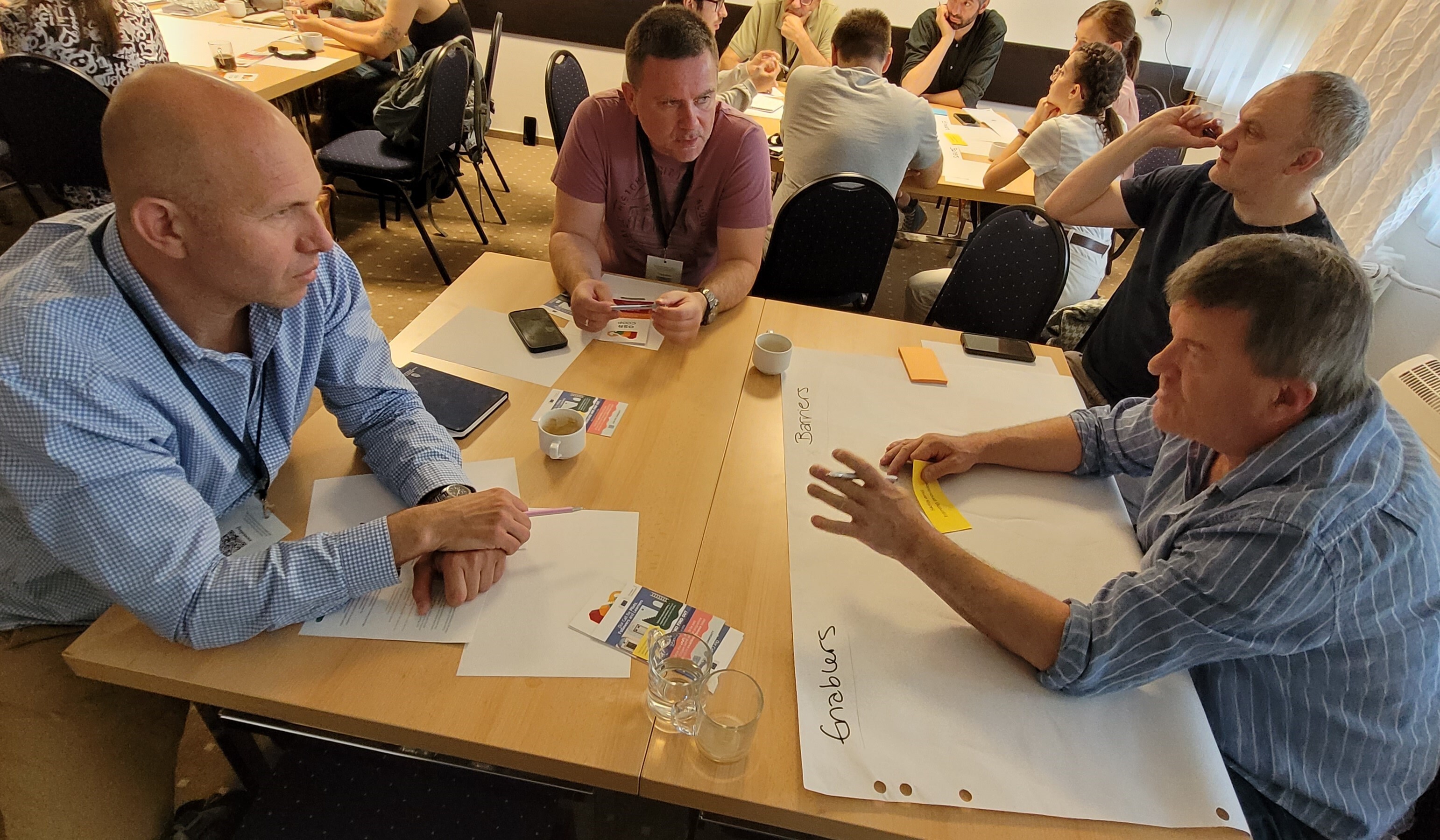
The last table had our colleagues Mairtin from EcoVision (Ireland) and Jonathan from People Powered Retrofit (UK), and with the rest of the participants in their group they talked about enablers and barriers for “skills and training provision”. Among the enablers, they listed the following as highlights:
- Basic Knowledge and NGO Partnerships: Some communities already possess basic knowledge, and partnerships with NGOs in countries like Hungary provide a solid foundation.
- Existing Energy Ratings: Hungary’s building energy rating system and Serbia’s emerging energy communities show promising starts.
However, their group highlighted the heaviness of the barriers that should be overcome:
- Government Support and Funding: There is a notable lack of government promotion and sustained funding for energy communities in Hungary. In Serbia, the absence of a one-stop shop for training creates a gap in skill development.
- Training Needs and Recognition: There is an urgent need for comprehensive training plans. However, the states’ roles in setting up and providing training programmes are not clearly defined, and the importance of such training for skills development is often underrecognized.
Conclusion
Overall, our CLR workshop helped us tremendously in better understanding both the strengths we can build upon and the obstacles we need to overcome to advance citizen-led renovation within energy communities.
By leveraging our collective expertise and enabling factors while addressing the identified barriers at the same time, the energy communities and cooperatives can create and support more effective retrofitting projects and the development of renovation services and One Stop Shops.
We extend our heartfelt thanks to all the participants for their insightful contributions. Together we are making small yet significant steps toward a future where energy communities can lead the way in sustainable living and citizen-led renovation within their local communities. Stay tuned for more updates as we continue on with our important mission.
